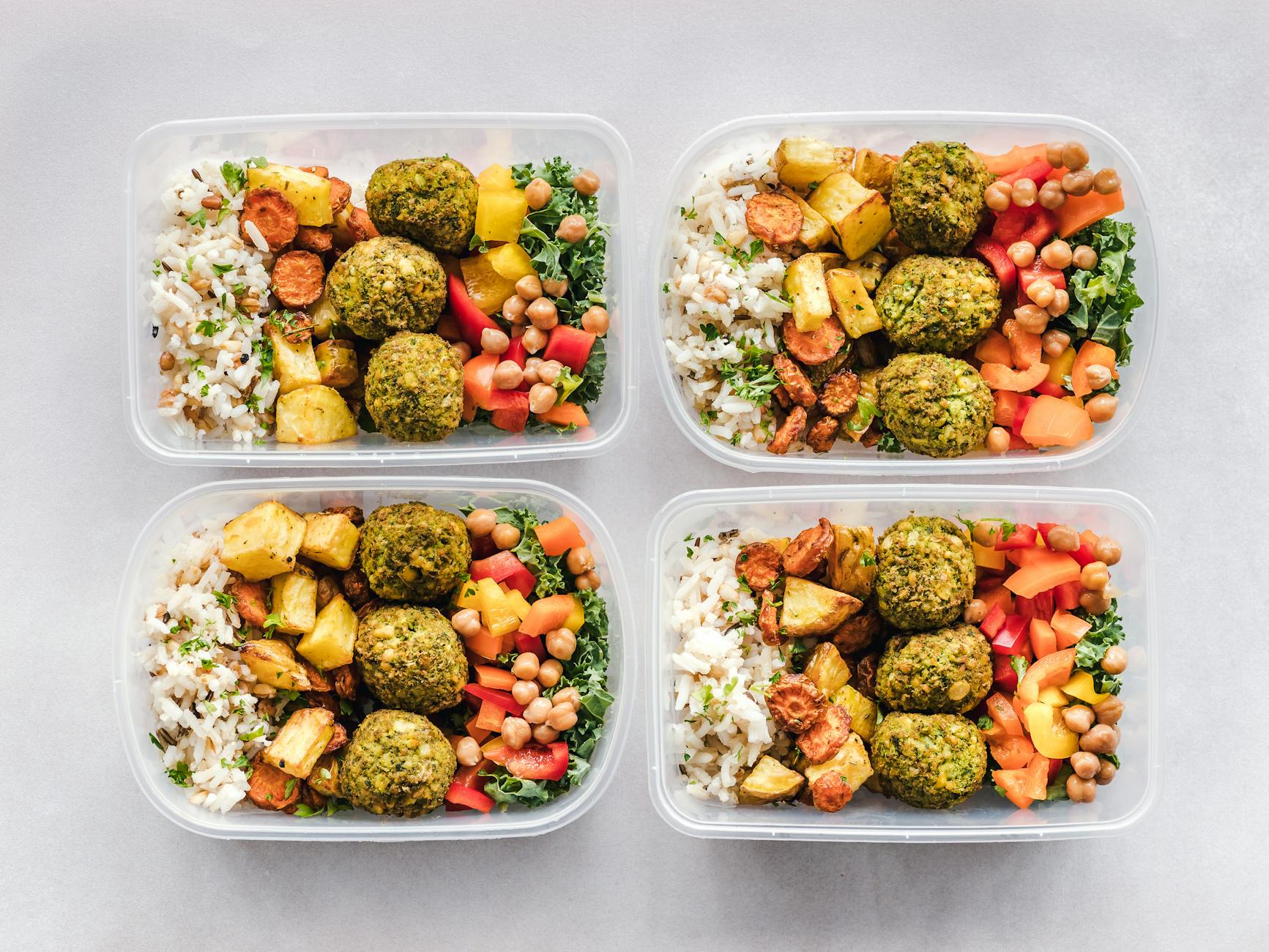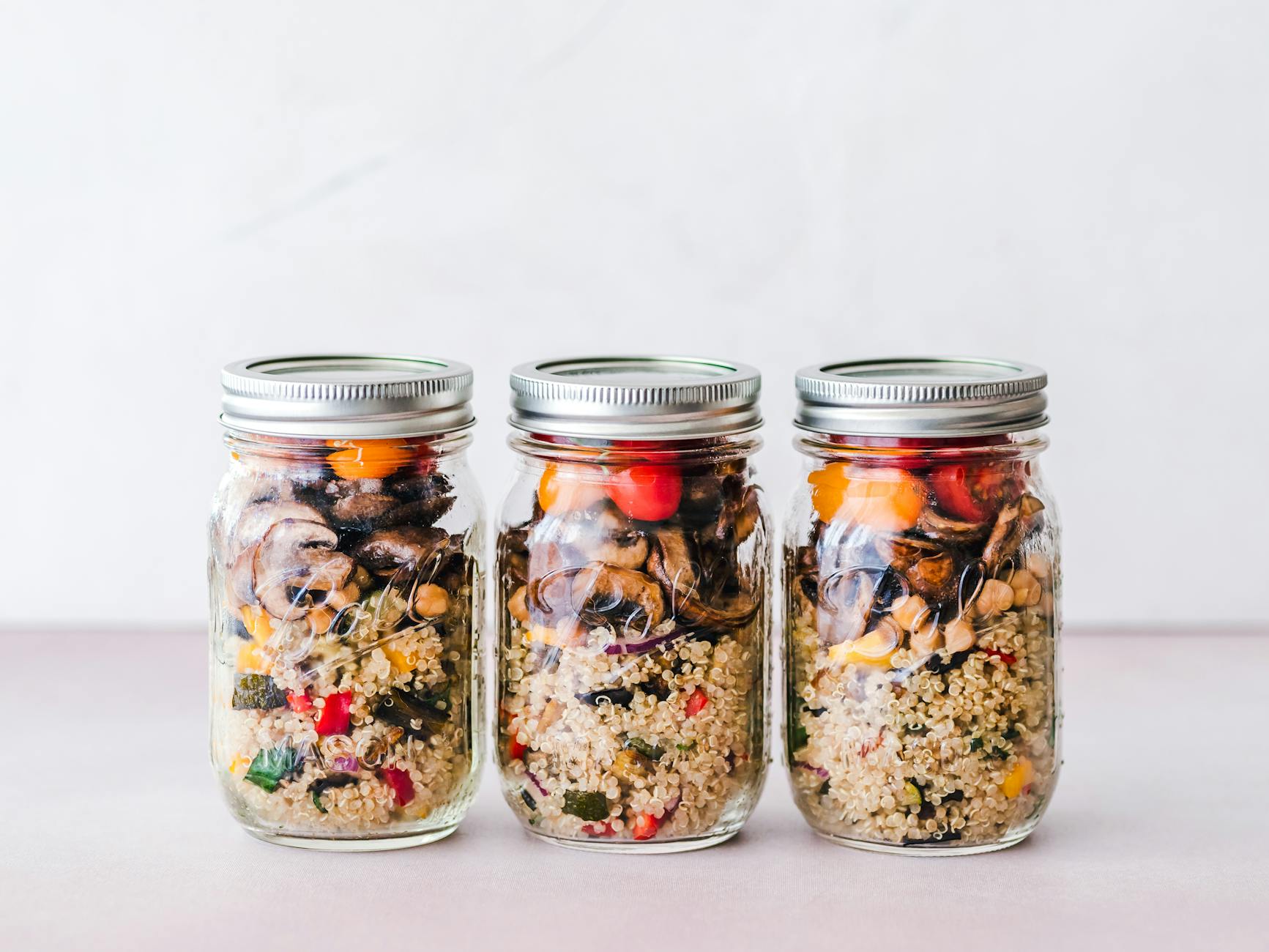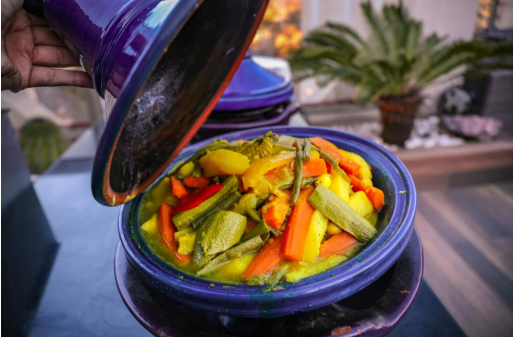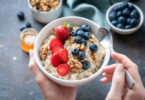Essential Vegetarian Slow Cooker Recipes for Health, Convenience, and Weight Loss
Eating healthy doesn’t have to be complicated or time-consuming. Vegetarian slow cooker recipes simplify meal prep, offering nutritious, hearty dishes with minimal effort. Whether you’re aiming for weight loss or boosting overall health for your diet, these meals bring convenience and flavor to the table. Perfect for men’s and women’s health, they’re a great option to fuel your lifestyle.
The Benefits of Slow Cooking for a Vegetarian Diet
Slow cooking is a game-changer for anyone exploring vegetarian cooking. It not only saves time but also locks in flavors and nutrients, making every meal wholesome and hassle-free. Let’s dive into how slow cooking benefits your vegetarian diet through health, convenience, and cost-efficiency.
Health Benefits of Slow Cooker Meals
Slow cooking is known for its ability to preserve nutrients in vegetables and legumes. Unlike other methods, such as boiling or frying, this technique retains water-soluble vitamins like Vitamin C and B vitamins, essential for supporting your body’s health. These nutrients are necessary whether your goal is weight loss or overall well-being.
Studies show that cooking foods evenly at a low temperature helps release their natural flavors while maintaining their nutritional value. This makes slow cooker meals ideal choices for men’s health and women’s health, catering to dietary needs across all genders.
For weight loss, slow cooker recipes can be powerful. Instead of calorie-dense options, hearty vegetarian stews and soups balance fiber and nutrient density, keeping you both full and energized. This helps control portion sizes while avoiding less-healthy snack temptations during the day.
Read more about the health benefits for slow cooking on the SharonPalmer blog!
Convenience of Slow Cooker Recipes
Life gets busy; slow cooking helps you handle it effortlessly. Do you often feel like there aren’t enough hours in the day? Slow cookers excel at saving time and effort. All you need to do is prep some vegetables, legumes, or spices and let them simmer throughout the day.
This hands-free style of cooking gives you time to focus on family, work, or even self-care tasks. For busy professionals or parents, having a “set it and forget it” system is a lifesaver. After hours of slow cooking, you’ll return to perfectly tender vegetables and deeply infused flavors.
You can even prepare meals in bulk, store them in your freezer, and simply warm them up for a quick but nutritious dinner. This is particularly satisfying for those juggling packed schedules with attempts at balanced meal prep.
Feel free to explore why every vegetarian should consider owning a slow cooker on Reddit.
Economic and Environmental Advantages
Slow cookers don’t just preserve food; they preserve your wallet too. This cooking method is incredibly cost-effective, as it allows you to use budget-friendly ingredients like dried beans, lentils, and seasonal vegetables without sacrificing quality or taste. Purchasing these items in bulk and focusing on plant-based staples boosts affordability even more.
From an environmental point of view, the energy efficiency of slow cookers is a huge bonus. They consume far less electricity than ovens, typically requiring the same amount as a light bulb. This reduction in energy use makes them eco-friendly kitchen gadgets that benefit both the environment and your financial health.
Curious about the additional economic savings of slow cooking? Find out more on Mumsnet’s discussion here.

Photo by Kaboompics.com
Nutritional Insights for Vegetarian Slow Cooker Recipes
Vegetarian slow cooker recipes are ideal for creating nutrient-rich, flavorful meals that cater to diverse health goals. Whether you aim to improve overall well-being, support weight loss, or cater to specific dietary needs, these slow-cooked dishes pack a nutritious punch with minimal effort.
Essential Nutrients in Vegetarian Slow Cooker Meals
Slow cooker meals are excellent for incorporating essential nutrients into your diet. These dishes often feature ingredients rich in protein, fiber, vitamins, and minerals—key components for maintaining a healthy lifestyle.
- Protein: Lentils, chickpeas, and black beans are popular plant-based protein sources in vegetarian slow cooker recipes. Pairing these with a whole grain like quinoa or brown rice creates a complete protein.
- Fiber: Ingredients like sweet potatoes, carrots, and broccoli are fiber-packed options that not only aid digestion but also keep you feeling full longer.
- Micronutrients: Bell peppers, spinach, and tomatoes, when slow-cooked, retain their vital nutrients, including Vitamin C, iron, and potassium. The low and steady heat means fewer nutrients are lost compared to frying or boiling.
Need meal-planning ideas? Check out this plant-based slow cooker meal plan to start cooking smarter.
Weight Loss-Friendly Slow Cooker Recipes
Slow cookers can be a secret weapon for managing your weight. The ability to combine wholesome ingredients in satisfying recipes makes this cooking method ideal for weight loss.
Consider these low-calorie, filling slow-cooker ideas:
- Vegetable Stews and Soups: These meals use water- and fiber-rich ingredients like zucchini, tomatoes, and celery. They’re low in calories but high in volume, so you feel fuller with smaller portions.
- Lentil-Based Curries: Lentils are nutrient-dense and packed with protein and fiber to help curb hunger longer between meals.
- Stuffed Bell Peppers: Filled with quinoa or couscous, legumes, and herbs, these are a light yet satisfying main course.
For further concepts, explore this list of health-packed vegetarian slow cooker meals.
Impact on Men and Women’s Health
Vegetarian slow cooker recipes benefit both men and women’s health in distinct ways. The steady cooking process preserves nutrients that boost wellness and ensure dietary balance.
- Men’s Health: Slow cooker recipes featuring whole grains and legumes support heart health. These ingredients are known to lower bad cholesterol levels and improve cardiovascular function. Flaxseeds and walnuts, often added to vegetarian recipes, can aid in maintaining prostate health.
- Women’s Health: Ingredients like leafy greens (spinach, kale) and lentils add iron and folate to your meals. These nutrients are vital for hormone regulation and preventing iron-deficiency anemia, prevalent in women.
Cooking with spices like turmeric and ginger also provides anti-inflammatory benefits for all genders, improving joint and gut health. If you’re learning about vegetarian meal options, the Vegan Family Kitchen shares recipes rich in these ingredients.

Photo by Ella Olsson
Vegetarian slow cooker recipes are a convenient and versatile way to meet your health and diet goals, whether you’re boosting your nutrition, improving heart health, or maintaining steady energy throughout the day. These recipes seamlessly integrate nutritious, plant-based ingredients to keep you feeling your best.
Popular Vegetarian Slow Cooker Recipes
Vegetarian slow cooker recipes are a treasure trove of bold flavors and wholesome ingredients. Whether you’re in the mood for hearty comfort food or a taste of something exotic, these recipes take the hassle out of cooking, letting the slow cooker bring out the best in each dish. Ready to explore the possibilities? Let’s dive into some delightful meal ideas.
Hearty Soups and Stews
Soups and stews are slow cooker stars. Packed with flavor, they’re warm, filling, and incredibly satisfying.
- Minestrone Soup: A classic mix of vegetables, beans, and broth, this Italian favorite bursts with color and nutrition.
- Lentil Soup: Lentils absorb spices beautifully, creating a nutrient-packed dish full of protein and fiber.
- Vegetable Stew: Root vegetables like carrots, sweet potatoes, and parsnips simmered with a tomato base offer a hearty, comforting meal.
For more soup ideas, explore Vegetarian Slow Cooker Recipes from Taste of Home.

Photo by Ella Olsson
Comfort Food Classics
When the craving for traditional comfort food hits, these vegetarian versions don’t disappoint:
- Vegetarian Chili: Packed with beans, bell peppers, and a spicy tomato base, it’s perfect for a cold day.
- Lasagna: Layer pasta, vegetarian-friendly marinara, ricotta, spinach, and mozzarella for a slow-cooked classic.
- Mac and Cheese: Creamy, cheesy, and oh-so-indulgent, this dish comes alive in the slow cooker.
Want to add more comfort food to your recipe collection? Check out Food Network’s vegetarian slow cooker recipes.
Global Delights
Expand your palate with vegetarian slow cooker recipes inspired by cuisines from around the world:
- Vegetarian Curry: Combining coconut milk, spices, and vegetables, this dish is aromatic and satisfying.
- Ratatouille: A French classic of eggplant, zucchini, tomatoes, and herbs, this stew is as vibrant as it is delicious.
- Chana Masala: This Indian-inspired chickpea curry is rich, tangy, and loaded with spices like cumin and coriander.
Feel free to explore more global inspirations at BBC Good Food’s vegetarian slow cooker collection.
Seasonal Favorites
Bring seasonal produce into the spotlight with these slow cooker recipes, perfect for each time of year:
- Spring: A light vegetable medley featuring asparagus, peas, and fresh herbs.
- Summer: Slow-cooked ratatouille with zucchini, squash, and ripe summer tomatoes.
- Autumn: Butternut squash soup or a hearty pumpkin stew.
- Winter: Look no further than root vegetable casseroles or spiced lentil curries to warm up.
Seasonal eating enhances both health and taste. For more ideas, take a look at these simple vegetarian slow cooker meals.
From hearty stews to global delicacies, your slow cooker is ready to serve as your ticket to stress-free, wholesome meals that fit effortlessly into your busy life.
Tips for Perfect Vegetarian Slow Cooker Dishes
A slow cooker can be your best ally in creating simple, flavorful vegetarian meals. To get the best results, you’ll need to focus on the finer details—like ingredient quality, layering techniques, and avoiding avoidable pitfalls. Here’s how you can elevate your slow cooking game to guarantee delicious outcomes every time.
Choosing the Right Ingredients
When it comes to vegetarian cooking, fresh and high-quality produce is essential. Think of vegetables as the stars of the dish—they take center stage, so they must taste their best. Wilted greens or overripe tomatoes can dampen the flavor of the entire recipe, much like how using dull tools slows a craftsman.
To get started:
- Shop seasonally: Fresh, seasonal vegetables bring more flavor and nutrients. Not sure what’s in season? Your local farmer’s market is a good clue.
- Pick vibrant colors: Opt for vegetables with bright, rich hues—they’re often packed with more nutrients and flavor.
- Go organic where possible: Organic vegetables are grown without harmful pesticides, making them a healthier option for your diet.
If you’re inspired to try exciting new recipes using foundational veggie ingredients, check out this collection of vegetarian slow cooker recipes on BBC Good Food.

Photo by Nishino Minase
Layering Ingredients Properly
Getting those deep, complex flavors in every bite means layering ingredients carefully. Slow cooking isn’t just about dumping everything into a pot—there’s a method for consistent and rich results.
Here’s how you can layer for success:
- Start with dense vegetables: Place root vegetables like carrots, potatoes, and onions at the bottom. They require more heat and time to cook thoroughly.
- Legumes and grains come next: Beans or grains absorb liquid and expand, so this layer works best in the middle.
- Top with delicate veggies: Add softer vegetables like zucchini, bell peppers, or spinach towards the end, so they don’t turn to mush.
- Use spices thoughtfully: Layer in spices early on—they’ll meld beautifully throughout the cooking process. Just be cautious of over-spicing; a little goes a long way.
Want more guidance for creating perfectly layered meals? Don’t miss this discussion on flavorful slow-cooker recipes on Taste of Home.
Avoiding Common Mistakes
Even simple cooking methods like slow-cooking come with potential challenges! From soggy veggies to bland flavors, small issues can creep in. Addressing common pitfalls ensures your dish comes out just as you intended.
Here’s a quick guide to things to avoid:
- Overcooking vegetables: Nobody likes mushy carrots or lifeless broccoli. Keep an eye on items that need less time and add them in during the last hour.
- Using too much liquid: Slow cookers don’t lose liquid through evaporation. Stick to the recipe proportions to avoid soupy results.
- Skipping a quick stir: Stirring, especially halfway through, ensures even cooking and better flavor distribution without crushing delicate ingredients.
- Forgetting seasoning adjustments: Slow cooking can mellow out spices over time. Always taste your dish towards the end and adjust as needed.
Looking for practical inspiration to avoid these challenges? Learn from others in the vegetarian slow-cooker community on Reddit’s tips thread.
With these tips in mind, you’ll be confident every time you prep your ingredients. Enjoy experimenting with your recipes while knowing you’re creating balanced, flavorful meals for your health and diet goals. Keep reading as we explore even more ways to perfect vegetarian cooking with your slow cooker!
FAQ: Vegetarian Slow Cooker Recipes
Vegetarian slow cooker recipes often come with common questions about ingredients, storage, and tools. Let’s explore some of the most frequently asked ones to eliminate any lingering doubts and simplify the process!
Can I Cook Frozen Vegetables in a Slow Cooker?
Yes, you can cook frozen vegetables in a slow cooker, but there are a few tips to keep in mind. Unlike fresh veggies, frozen ones may release additional water as they thaw. This could slightly dilute your recipe’s flavor if you don’t plan accordingly.
If you’re using frozen ingredients:
- Defrost them first when possible to ensure even cooking.
- Reduce added liquids in your recipe by about 1/2 cup to compensate for extra moisture.
- Add frozen vegetables towards the end of cooking to avoid overcooking and maintain their texture.
Cooking frozen ingredients saves time, but careful preparation ensures the flavors remain bold and balanced.

Photo by Zak Chapman
How to Store and Reheat Leftovers
Proper storage and reheating ensure slow-cooked meals taste just as good the next day—or even better! Thanks to their rich, developed flavors, leftovers can make mealtime a breeze.
Here’s how to handle leftovers:
- Cool before storing: Allow the dish to cool to room temperature before transferring it to airtight containers.
- Refrigerate or freeze promptly: Store in the fridge for up to 3 days or freeze for up to 3 months.
- Portion control: Divide into single-use portions to make reheating easy and avoid waste.
To reheat, use a microwave, stovetop, or your slow cooker. For frozen meals, let them thaw overnight in the fridge before reheating. Always stir thoroughly to maintain even heat distribution!
What Are the Best Slow Cookers for Vegetarians?
Choosing the right slow cooker depends on your cooking habits, budget, and the meals you plan to create. For vegetarians, where a wide variety of ingredients like grains, beans, and vegetables take center stage, having a capable slow cooker can be a game-changer.
Here are some options based on different needs:
- Compact options (1.5-3 quarts): Great for dips, side dishes, or meals for one or two people.
- Mid-size cookers (4-6 quarts): Ideal for couples or small families creating soups, stews, and casseroles.
- Large cookers (7+ quarts): Perfect if you batch-cook recipes like chili or vegetable lasagna.
Some models even include smart features like programmable timers and keep-warm settings, which are helpful for busy schedules. Curious about slow cooker brands and features for plant-based meals? Check out why a slow cooker is great for vegetarian cooking.
Wondering about recipes to go with your slow cooker? You can find more inspiration with this collection of vegetarian ideas on BBC Good Food.
Conclusion
Vegetarian slow cooker recipes are a perfect match for health-conscious, busy individuals aiming for convenience without sacrificing flavor. They offer a balanced mix of essential nutrients, simplified meal prep, and endless versatility to fit diverse dietary and lifestyle goals.
Combine your favorite seasonal vegetables, spices, and plant-based proteins to explore bold, hearty meals that prioritize health and sustainability. Whether you’re planning meals for the week or crafting a weight-loss-friendly dish, slow cookers make it easy to enjoy wholesome, stress-free cooking.
Ready to transform your diet with simple and satisfying recipes? Discover more tips and recipe ideas on BBC Good Food’s vegetarian slow cooker recipes. Start slow cooking your way to a healthier and more vibrant lifestyle today.









